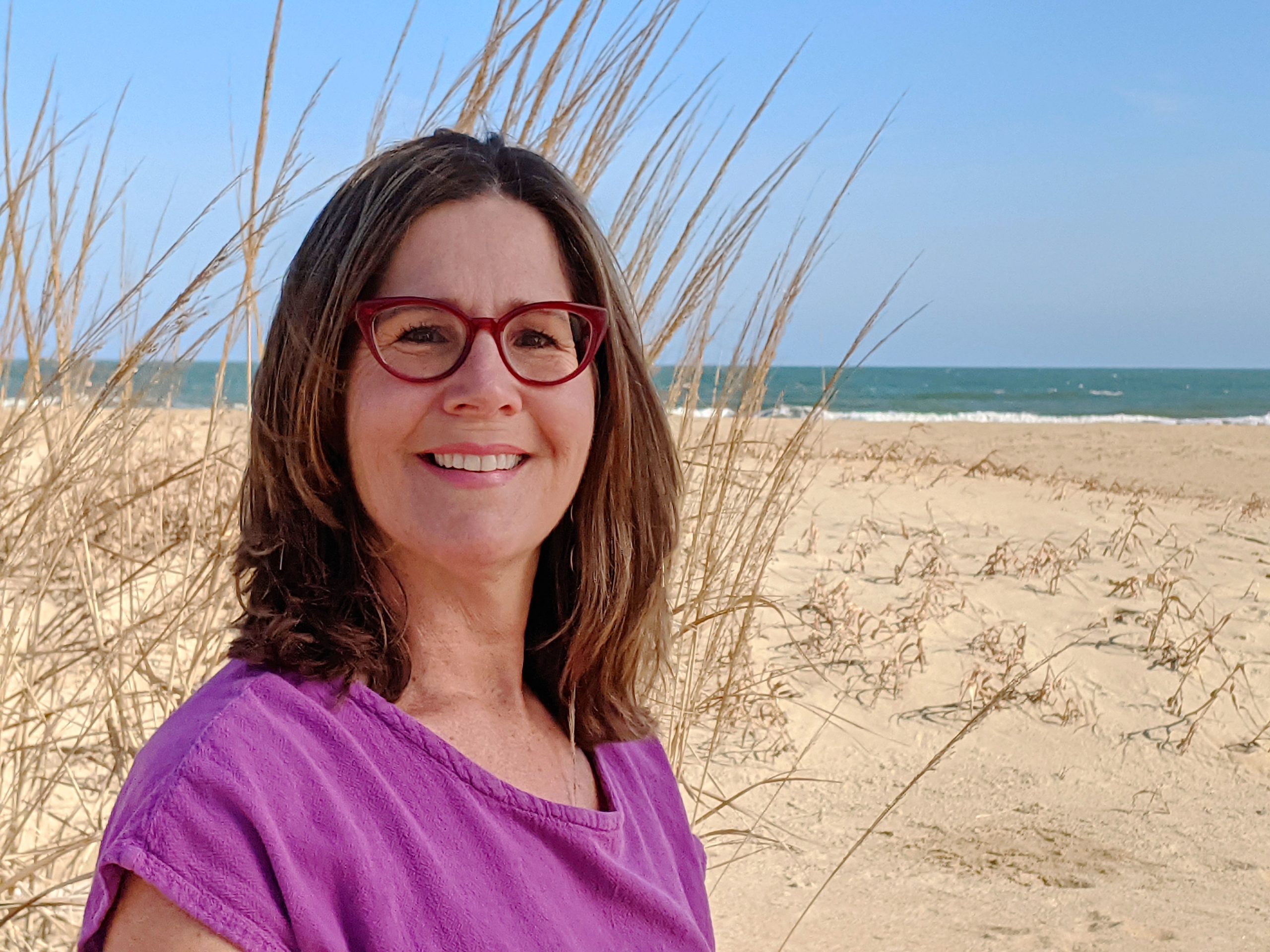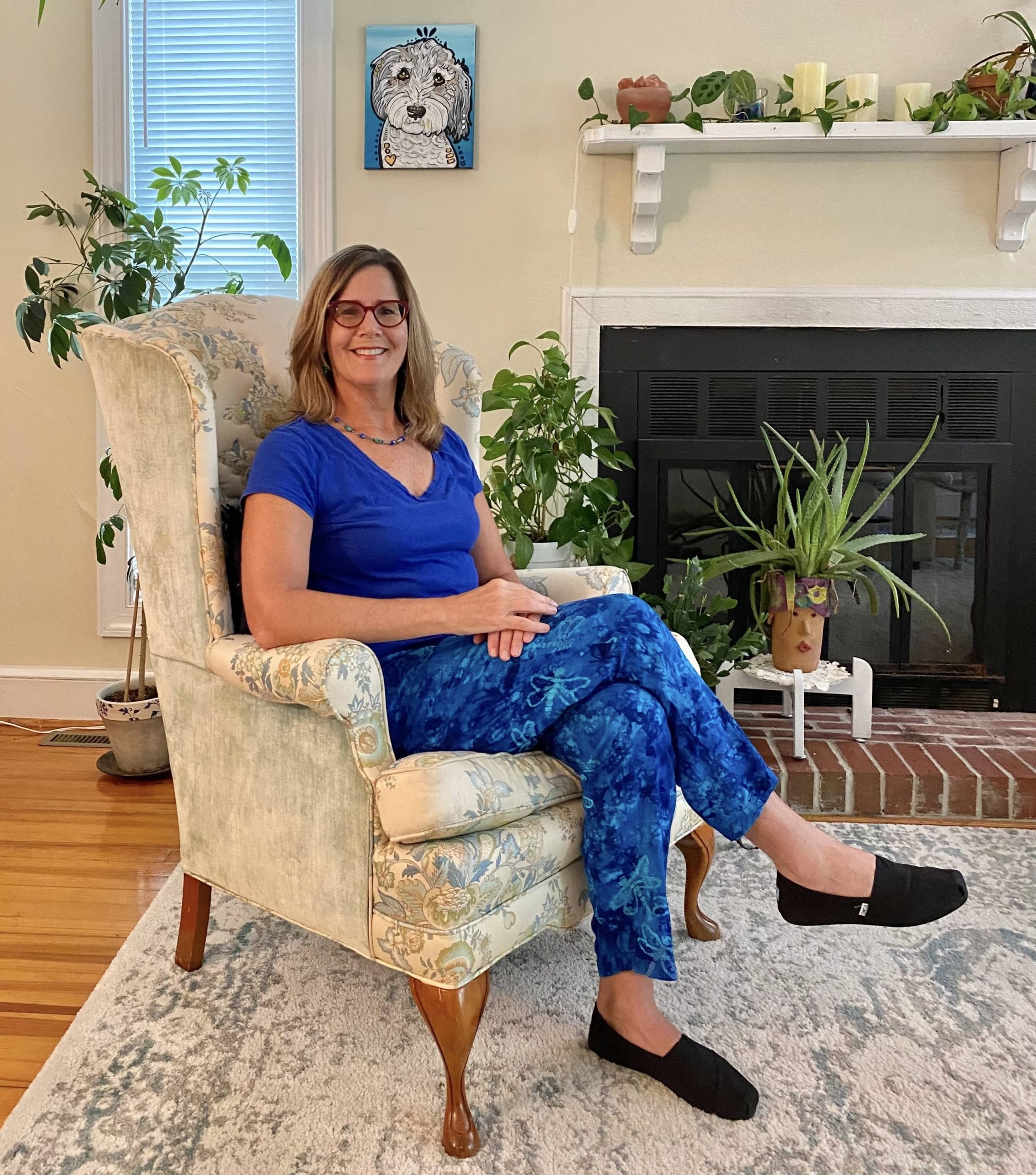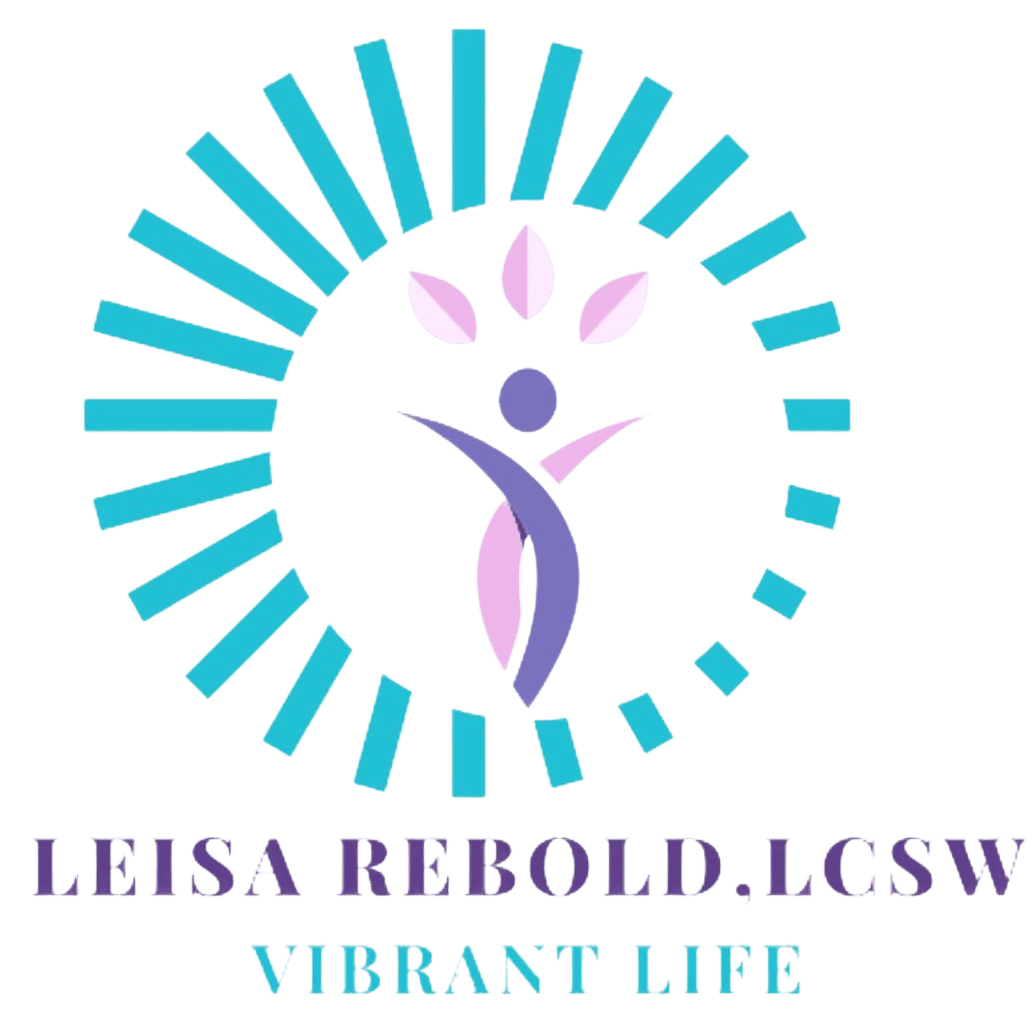“You can’t go back and change the beginning, but you can start where you are and change the ending.” C.S. Lewis
“You can’t go back and change the beginning, but you can start where you are and change the ending.” C.S. Lewis

Life can be overwhelming. Our endless and conflicting roles often leave us depleted, lonely and confused.
To others, you seem okay, maybe even living your best life. Your emotions, thoughts and body sensations, however, tell a much different story. You experience tight shoulders as the weight of the world rests there. You feel dwindling self-esteem and low self-worth. Life transitions you once dreamed of have finally arrived, so you are left wondering why you are still not happy. Maybe you have graduated but your aspirations and dreams feel at a standstill or you are married, and yet you are confusingly unfulfilled. You landed that dream promotion, but you are so anxious it is difficult to enjoy the fruits of your work. You have started a family, but you feel guilty for wondering if there is more for you beyond parenthood. Perhaps the empty nest is drawing you to wonder what is next, or retirement is finally here and you are restless.
No matter where you are in life, you are here because you have a sense that your current reality is not all there is. The status quo is not cutting it anymore, and you seek to experience greater joy and wholeness. Your pesky anxious thoughts and or depressive fatigue have made their presence known long enough, and you are finally seeking support to achieve greater well-being.
I work with teens and adults who are feeling overwhelmed or are experiencing depression, stress, or anxiety. Despite these challenges, my clients are ready to invite positive change into their lives. Wherever you are on this journey toward wholehearted living, I am honored to work with you.
Specialites
Specialities
My therapeutic work is focused on but not limited to the following:
Specialites
Specialities
My therapeutic work is focused on but not limited to the following:
Anxiety
Anxiety can present itself in a variety of unique ways. At its foundation, anxiety is persistent worrying, which becomes detrimental to a person’s functioning. Anxiety can manifest itself through emotions, bodily sensations, and thoughts.
Anxiety might look like the following symptoms:
• Rapid heart rate
• Tension
• Fatigue
• Brain Fog
• Avoidance of that which causes anxiety
• Stomach upset or other GI issues
• Trembling or shaking
• Sometimes, anxiety can look like depression symptoms
• Tight chest
• Sense of panic
Anxiety is a common reality for many. Therapy is a great way to manage anxiety symptoms with the support of a professional. I use a variety of approaches while working with anxiety, including Cognitive Behavioral Therapy (CBT), Mindfulness and strengths-based approaches.
Depression
While we all experience periods of sadness, feeling weighted down, and fatigued, some experience these symptoms regularly. Depression is a mood disorder that can severely disrupt functioning and a sense of well-being. Therapy is an evidence-based approach used to manage or eliminate depression, with or without the help of medication.
Depression might look like the following symptoms:
• Tearfulness
• Feeling hopeless
• Disinterest in once enjoyable activities
• Fluctuations in appetite or weight
• Anxiety symptoms
• Indecisiveness
• Suicidal thoughts or a preoccupation with death
• Fatigue
• Sleeping problems
Working together, we come up with a plan curated for your unique depression needs. We will work collaboratively to improve behaviors that keep you in the depression loop, identify and work through negative thought patterns, and feel emotions that are waiting to be felt. Sometimes, suppressing our feelings can perpetuate depressive symptoms. While working with depression, I use Cognitive Behavioral Therapy (CBT), Mindfulness-Based Cognitive Therapy, as well as a person-centered and strengths-based approaches.
Depression
While we all experience periods of sadness, feeling weighted down, and fatigued, some experience these symptoms regularly. Depression is a mood disorder that can severely disrupt functioning and a sense of well-being. Therapy is an evidence-based approach used to manage or eliminate depression, with or without the help of medication.
Depression might look like the following symptoms:
• Tearfulness
• Feeling hopeless
• Disinterest in once enjoyable activities
• Fluctuations in appetite or weight
• Anxiety symptoms
• Indecisiveness
• Suicidal thoughts or a preoccupation with death
• Fatigue
• Sleeping problems
Working together, we come up with a plan curated for your unique depression needs. We will work collaboratively to improve behaviors that keep you in the depression loop, identify and work through negative thought patterns, and feel emotions that are waiting to be felt. Sometimes, suppressing our feelings can perpetuate depressive symptoms. While working with depression, I use Cognitive Behavioral Therapy (CBT), Mindfulness-Based Cognitive Therapy, as well as a person-centered and strengths-based approaches.
Life Transitions
Our lives are marked by the ever-flowing cycles of change. Even when we “cannot wait” for newness; whether that be a new baby, a graduation, or moving to a new city, we often still grieve for what was. We miss the life we had before the family expanded or we experience a wave of sadness as we wave goodbye to our old neighbors.
Sometimes, life transitions are not welcome. Instead of the life you envisioned and relied on, everything seems to be spinning out of control. Your spouse cheated, and now you are in the midst of a draining divorce. You were just recently diagnosed with cancer, and your life has been turned upside down. Nothing is the same anymore. Perhaps you are now caring for a parent with dementia, while raising your own children. Maybe you retired at the urging of your family, but dreaded the retirement and now you are lost as well as resentful.
Life transitions provide us with excitement, heartbreak, and often wisdom. I work with clients who are facing difficult or changing seasons. You can expect me to draw from an eclectic approach, incorporating various treatments such as Cognitive Behavioral Therapy, Mindfulness, and strengths-based approaches.
Self-Care
Self-care is our way of nourishing our minds, bodies, and souls in a way that honors our own needs. It is our fuel so we can work effectively, take care of others, and reach our goals. Caring for oneself is an individualized and personalized concept, so it looks different person to person.
For some, self-care might mean saying no to an event because going will mean feeling drained for the rest of the week. It might mean getting into the practice of tidying up your home for 15 minutes at the end of the day, because you cannot function in clutter. Self-care might also mean ensuring you see other people at least once or twice a week, because being around others fills your cup.
Together, you and I will become curious and conscious of what self-care practices will most benefit you and your life. We will talk about a plan to begin your self-care routine and celebrate when you do take compassionate care of yourself.
Self-Care
Self-care is our way of nourishing our minds, bodies, and souls in a way that honors our own needs. It is our fuel so we can work effectively, take care of others, and reach our goals. Caring for oneself is an individualized and personalized concept, so it looks different person to person.
For some, self-care might mean saying no to an event because going will mean feeling drained for the rest of the week. It might mean getting into the practice of tidying up your home for 15 minutes at the end of the day, because you cannot function in clutter. Self-care might also mean ensuring you see other people at least once or twice a week, because being around others fills your cup.
Together, you and I will become curious and conscious of what self-care practices will most benefit you and your life. We will talk about a plan to begin your self-care routine and celebrate when you do take compassionate care of yourself.
Coping Skills
There is no doubt that life can be difficult. Coping skills are what we rely on to distract, self-soothe, and calm our nervous systems. Some skills suggested by a therapist might be new to you, while others are old and familiar. Some coping skills may be easy and second-nature, while others require a bit of practice. Coping skills look different for each client, and what works for one person may not work for you. What is important is that you are open to trying skills so you are prepared for when difficulty arises.
Below is a list of common coping skills. This list is not exhaustive, and only touches on a few available coping skills:
• Breathing
• Meditation
• Drawing
• Reading
• Making/Creating something
• Taking a shower
• Reading something enjoyable
• Listening to music
• Talking with a friend
• Movement
We will work together to discover what skills work best for you and hone those skills that need to be tuned up.
Self-Esteem
Many people do not feel “good enough”; they perceive themselves as “less than” and endure painful suffering from this belief. Much relational dysfunction can stem from this belief, and you might spend years unconsciously trying to prove your worth to others. Healing can awaken once you start to notice your unique strengths, gifts, and worth. Together, we work on those thoughts and beliefs that are telling you lies about your worth and value in order to unlock new found freedom and ease.
Self-Esteem
Many people do not feel “good enough”; they perceive themselves as “less than” and endure painful suffering from this belief. Much relational dysfunction can stem from this belief, and you might spend years unconsciously trying to prove your worth to others. Healing can awaken once you start to notice your unique strengths, gifts, and worth. Together, we work on those thoughts and beliefs that are telling you lies about your worth and value in order to unlock new found freedom and ease.
CBT and the relationship between Thinking, Feeling & Acting
CBT and the relationship between Thinking, Feeling & Acting
CBT and the relationship between Thinking, Feeling & Acting
Cognitive behavioral therapy (CBT) helps us become more aware of our thoughts and how they are keeping us stuck in unhealthy patterns of thinking, feeling, and acting. The way we perceive the world comes from what we learned as a child, our view of the culture around us, the stories we tell ourselves, and the patterns we become stuck in. Through CBT, you learn strategies to change the way your mind translates situations and work through old traumas and beliefs that shaped your inaccurate and unhelpful thoughts that cause distress and hold you back from reaching your life goals. It can sound confusing but actually applying the skills of CBT is a lot easier than trying to understand all the jargon used to explain it. CPT does require a commitment to daily practice to reap the amazing lifelong benefits.
How Does Mindfulness
Help?
How Does Mindfulness Help?
A mindfulness practice or meditation, can:
• Increase positive feelings and decrease anxiety, depression, and somatic distress.
• Help you step back and observe your thoughts without judgment.
• Allow you to view your suffering and struggles more compassionately and objectively.
• Enable you to remain present in your current moment and experience.
• Train attention and awareness in order foster calmness, clarity and concentration
About Me
About Me

Hello!
I am a Licensed Clinical Social Worker (LCSW) working with adults online and in-person in the state of Virginia. You may be experiencing depression, stress, anxiety, or may just feel overwhelmed by all of life’s demands. I meet you where you are, and we collaboratively work together, charting the best course of action to address both your immediate and long-term needs. I provide evidence-based treatments, such as Cognitive Behavioral Therapy (CBT) and Mindfulness in a safe, calm, and empowering environment, allowing you to reach your goals and finally create the life you deserve to live.
Experience
I received my Master’s Degree in Social Work from the University of Hawaii at Manoa. I have been a Social Worker in various roles my entire adult life. Before opening Vibrant Life, PLLC. I gained a breadth of experience working as a Foster Care Specialist, a Mental Health Therapist for high-risk youth and their parents in hospital, residential, home, and school settings, a Mental Health Counselor for adults in both outpatient and inpatient mental health settings, and also provided supportive counseling with patients and loved ones in hospice and palliative care settings.

Experience
I received my Master’s Degree in Social Work from the University of Hawaii at Manoa. I have been a Social Worker in various roles my entire adult life. Before opening Vibrant Life, PLLC. I gained a breadth of experience working as a Foster Care Specialist, a Mental Health Therapist for high-risk youth and their parents in hospital, residential, home, and school settings, a Mental Health Counselor for adults in both outpatient and inpatient mental health settings, and also provided supportive counseling with patients and loved ones in hospice and palliative care settings.
Approach
As a clinical social worker, I see situations, challenges, and solutions in a person-in-environment context. Instead of merely pathologizing your challenges, I take a more holistic approach that considers the multifaceted fabric of your life. I consider your history, strengths, and current community/support system to name a few. Empowering you to live a life that is unique and true to you is central to my work.
I find TEAM CBT and Mindfulness practices extremely effective. CBT is designed to help you tackle overwhelming problems by breaking them down into manageable parts. It focuses on changing negative thoughts and patterns to improve how you feel. Unlike some other therapies, CBT addresses your current issues rather than delving into your past. TEAM-CBT is an evidence-based psychotherapy framework developed by Dr. David Burns, MD, Adjunct Emeritus Professor at Stanford School of Medicine. This approach integrates various innovative techniques to enhance the effectiveness of CBT.
In addition to working with heterosexual men and women, I also work with members of various other communities. I work with members of the LGBTQIA+ community and I am queer allied. I also enjoy working with those who identify as body positive, single mothers, Neurodivergent individuals and those who are on difficult cancer and health journeys. My work is for motivated teens and adults who are ready to change.

Approach
As a clinical social worker, I see situations, challenges, and solutions in a person-in-environment context. Instead of merely pathologizing your challenges, I take a more holistic approach that considers the multifaceted fabric of your life. I consider your history, strengths, and current community/support system to name a few. Empowering you to live a life that is unique and true to you is central to my work.
In addition to working with women, I also work with members of various other communities. I work with members of the LGBTQIA+ community and I am queer allied. I also enjoy working with those who identify as body positive, single mothers, and those who are on the difficult cancer journey. My work is for those who are adults 18 years and older and are ready to change.

Background
I have always been interested in people and have had a curiosity about how people view the world. Like you, I have had my fair share of life struggles. I trace back my desire to help others to having been impacted by the unexpected death of my disabled little sister when I was young child. I remember feeling alone in my confusion and sadness and wished someone would take the time and effort to really connect with me so that I could process my feelings. I vowed that I would be the kind of person that noticed and tuned into others and would do my best to really care and understand them. Over the years I have kept that sense of curiosity, observation, and empathy. Through my own research, self-help, counseling, and ongoing training and education I have added the skills to continue to evolve personally and help others on their healing journey. I can say first hand that the power of being fully understood by another caring individual, along with examining and changing thought patterns is truly transformational.
Some of my free time activities include: spending time in nature, playing pickleball, traveling, dancing, music, yoga, cooking and spending time with my husband, sweet dog, friends and family.
I look forward to working with you!
Frequently Asked Questions
Frequently Asked Questions
The skills and coping mechanisms that you develop in therapy will not end with your last session;
you will carry these tools with you for the rest of your life











